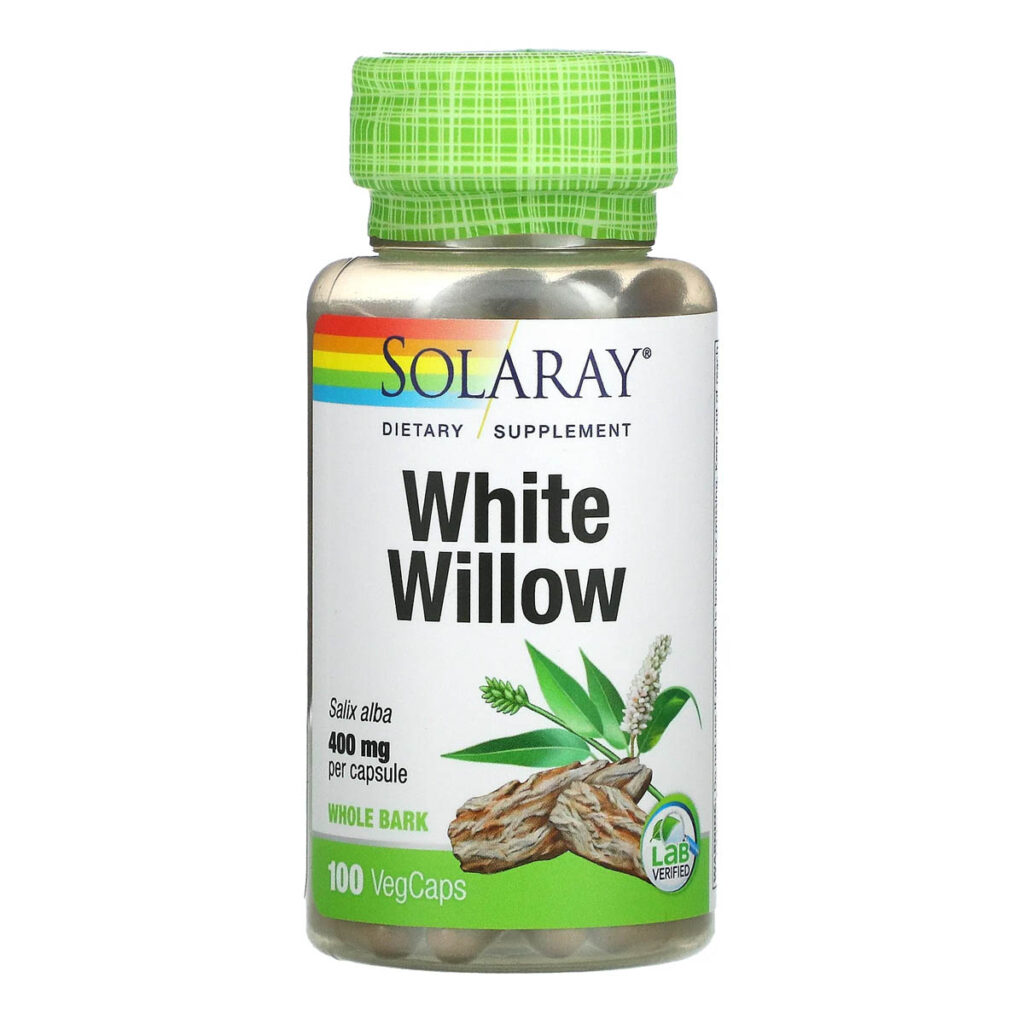White willow, scientifically known as Salix alba, is a tree native to Europe and parts of Asia and North Africa. It has a long history of medicinal use, dating back to ancient civilizations such as the Greeks and Egyptians. The bark of the white willow tree contains a compound called salicin, which is similar to aspirin and has been used for centuries to relieve pain and reduce inflammation. In this comprehensive guide, we’ll explore the various benefits of white willow supplements, drawing upon both traditional knowledge and modern scientific research.
Historical Significance
White willow has been used in traditional medicine for thousands of years. Ancient civilizations, including the Greeks, Egyptians, and Native Americans, used white willow bark to alleviate pain, reduce fever, and treat various ailments. The ancient Greek physician Hippocrates, often referred to as the father of modern medicine, prescribed white willow bark for pain relief and fever reduction. Over time, white willow became a staple in herbal medicine systems around the world, with practitioners valuing its analgesic, anti-inflammatory, and antipyretic properties.
Pain Relief
One of the most well-known benefits of white willow supplements is their ability to relieve pain. White willow bark contains salicin, a compound that acts as a natural pain reliever. Salicin is similar to aspirin in its effects and works by inhibiting the production of prostaglandins, chemicals in the body that promote inflammation and pain. White willow supplements may be used to alleviate various types of pain, including headaches, menstrual cramps, back pain, arthritis, and muscle aches.
Anti-inflammatory Effects
In addition to its pain-relieving properties, white willow supplements also have anti-inflammatory effects. Chronic inflammation is associated with a wide range of health conditions, including arthritis, cardiovascular disease, and autoimmune disorders. White willow bark contains compounds that help reduce inflammation by inhibiting the activity of pro-inflammatory enzymes and cytokines. Regular consumption of white willow supplements may help decrease inflammation in the body and alleviate symptoms associated with inflammatory conditions.
Fever Reduction
White willow supplements have been traditionally used to reduce fever, a symptom commonly associated with infections and inflammatory conditions. Salicin, the active compound in white willow bark, has antipyretic properties that help lower body temperature by inhibiting the production of prostaglandins in the brain. White willow supplements may be used to manage fever in cases of colds, flu, and other infectious diseases, helping to promote comfort and recovery.
Joint Health Support
White willow supplements may offer benefits for joint health and mobility, particularly for individuals with arthritis and other inflammatory joint conditions. The anti-inflammatory and analgesic properties of white willow bark may help reduce pain, swelling, and stiffness in the joints, improving overall mobility and function. White willow supplements may be used as part of a holistic approach to managing arthritis symptoms, along with lifestyle modifications and other complementary therapies.
Cardiovascular Health
Emerging research suggests that white willow supplements may have potential benefits for cardiovascular health. Salicin, the active compound in white willow bark, has been shown to have antiplatelet and anticoagulant effects, which may help prevent blood clot formation and reduce the risk of heart attacks and strokes. Additionally, white willow supplements may help lower blood pressure and improve blood flow, supporting overall cardiovascular function.
Usage and Dosage
White willow supplements are available in various forms, including capsules, tablets, tinctures, and teas. The appropriate dosage may vary depending on factors such as the specific health concern being addressed, the concentration of salicin in the supplement, and individual factors such as age, weight, and overall health status. It is advisable to follow the manufacturer’s instructions or consult with a healthcare professional to determine the suitable dosage for optimal results.
Safety Considerations
While white willow supplements are generally considered safe for most people when used as directed, there are some precautions to consider. Individuals who are allergic to aspirin or other salicylate-containing medications should avoid white willow supplements, as they may experience an allergic reaction. Additionally, white willow supplements may interact with certain medications, including blood thinners, nonsteroidal anti-inflammatory drugs (NSAIDs), and certain herbs and supplements. Pregnant and breastfeeding women should consult a healthcare professional before using white willow supplements.
Conclusion
White willow supplements offer a range of potential health benefits, from pain relief and inflammation reduction to fever reduction and cardiovascular support. Rooted in centuries of traditional use and supported by modern research, white willow continues to be valued for its therapeutic properties and versatile applications. However, it’s essential to use white willow supplements judiciously and under the guidance of a healthcare professional, especially for individuals with pre-existing medical conditions or those taking medications. With careful use, white willow supplements can be a valuable addition to a holistic approach to health and well-being.
- Sleep Tight: My Fun Journey with Just CBD’s Sleep Products! - September 30, 2024
- Top Picks for CBD Topicals: My Fun and Honest Review of JustCBD UK - August 16, 2024
- Benefits of Whitewillow Supplements - April 1, 2024

